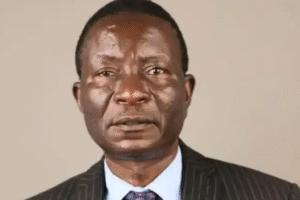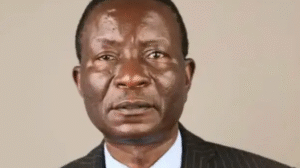Chaos erupted in the streets surrounding the Parliament this evening, as hundreds of angry protesters, many of them young people, clashed violently with police shortly after lawmakers passed the highly controversial Finance Bill 2024.
The new legislation, which includes unpopular tax hikes and spending cuts, had drawn widespread condemnation from opposition parties, labor unions, and civil society groups.
Demonstrators had gathered outside the Parliament building to voice their opposition, but the protest soon turned ugly.
Eyewitnesses reported that protesters began hurling rocks, bottles, and other projectiles at the lines of police officers guarding the parliamentary compound.
The security forces responded with tear gas, water cannons, and baton charges in an attempt to disperse the unruly crowd.
Running battles continued for over an hour, leaving several protesters and police officers injured.
At least 30 people were arrested on charges of inciting a riot and destruction of public property.
The scenes of violence have raised serious concerns about the government’s ability to manage public discontent over the unpopular economic measures contained in the Finance Bill.
The bill’s passage, despite fervent opposition, has exacerbated tensions in a country already grappling with economic hardships and political divisions.
The Finance Bill 2024, which was passed with a slim majority, includes measures that many believe will place additional financial burdens on ordinary citizens.
Key provisions include tax hikes on essential goods and services, spending cuts in vital public sectors, and increased levies on small and medium-sized enterprises.
These measures, aimed at addressing budget deficits and economic instability, have been criticized for disproportionately affecting low and middle-income families.
Labor unions and civil society groups have been vocal in their opposition, arguing that the bill will deepen inequality and stifle economic growth.
Opposition parties have also condemned the bill, accusing the government of prioritizing fiscal austerity over the well-being of its citizens.
The violent protests are a manifestation of this widespread discontent.
In the aftermath of the clashes, several questions arise about the government’s approach to economic reform and its responsiveness to public sentiment.
Critics argue that the administration has failed to adequately consult with stakeholders or consider alternative measures that might have lessened the public’s burden.
The heavy-handed response to the protests further highlights the fraught relationship between the government and the populace.
The international community has been watching closely, with some foreign observers expressing concern over the escalating violence and the potential for further unrest.
The government’s ability to navigate this crisis will be crucial in maintaining stability and restoring public trust.
In the coming days, the focus will likely be on the aftermath of the protests and the government’s next steps.
Will there be a move towards dialogue and compromise, or will the administration double down on its current course? The resolution of this conflict will have significant implications for Kenya’s political and economic future.
The broader implications of the Finance Bill 2024 and the public’s vehement reaction to it will continue to reverberate.
This incident serves as a stark reminder of the importance of inclusive and transparent policymaking in addressing complex economic challenges.





















Add Comment